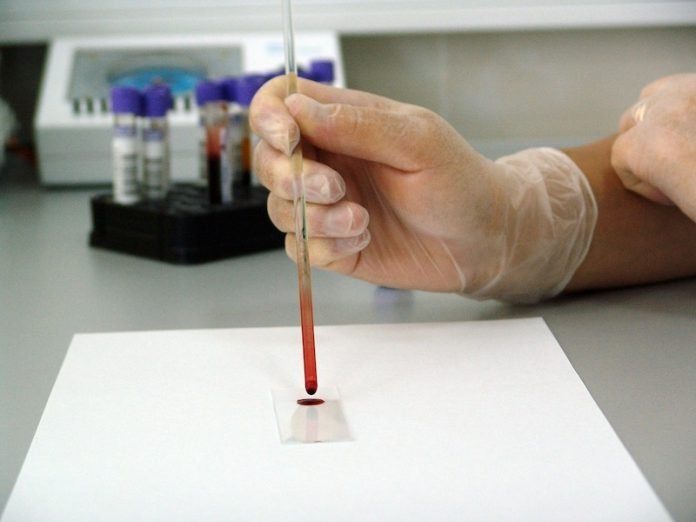
In a new study, researchers have developed a simple blood test that may offer a new way to diagnose Alzheimer’s disease and monitor patients’ response to treatment.
They designed a new system called APEX (Amplified Plasmonic Exosome) to detect the aggregated amyloid-beta (Aβ), which is an early-stage molecular marker of Alzheimer’s.
The research was done by a team from the National University of Singapore and their collaborators.
Alzheimer’s disease is the most common cause of dementia. Early detection and intervention can improve the success of disease-modifying therapies.
But this is hard to do because current clinical evaluation and assessments are subjective and PET imaging and cerebrospinal fluid tests are either too expensive or invasive.
In the study, the new technology is highly sensitive and provides an accurate diagnosis, comparable to brain positron emission tomography (PET) imaging, which the current gold standard for Alzheimer’s disease.
It can detect and analyze the earliest forms of Aβ proteins in blood samples.
In addition, the cost is only about $25 per test, less than 1 percent of the cost of PET imaging.
The current design could test 60 samples simultaneously and produce results in less than one hour.
The APEX system uses native blood plasma without additional sample processing, it conducts direct measurement and is very simple to use in clinical settings.
The team says the new system could be a big step forward in providing a better solution to detect Alzheimer’s in blood samples.
The team is currently working with industry partners to commercialize this technology. They expect the device will reach the market within the next five years.
The lead author of the study is Shao Huilin, an assistant professor from the Institute for Health Innovation & Technology.
The study is published in Nature Communications.
Copyright © 2019 Knowridge Science Report. All rights reserved.



